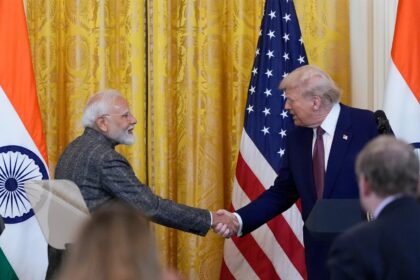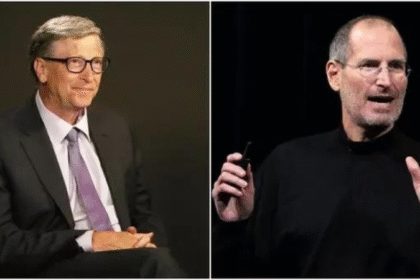Table of Contents
In recent years, the world has seen a remarkable shift toward right-wing ideologies, a movement that is sweeping across countries from Europe and North America to Southeast Asia and beyond. This trend has resonated particularly in nations with strong religious identities. As the 2024 Pew Research Center survey reveals, over 80% of Indians prefer a Prime Minister who shares their religious beliefs—a stark contrast to economically advanced nations such as Japan and the U.S., where similar preferences are significantly lower(PEW_Survey_2024_India_P…). But why are so many people and countries leaning toward right-wing politics, and what are the positive and negative consequences of this movement? Let’s explore the global shift through examples and stories to better understand its impacts.
The Positive Impacts of the Right-Wing Movement
1.) Strengthening National Identity
One of the key features of right-wing politics is its focus on nationalism, patriotism, and the preservation of traditional values. This often brings a sense of unity and pride in national identity. Take the example of Hungary, where Prime Minister Viktor Orbán’s government has promoted a form of “Christian democracy.” By championing the country’s Christian heritage and implementing policies aimed at preserving Hungarian culture, Orbán has gained widespread support from those who feel their national identity is under threat from globalism and immigration.
Similarly, in India, Prime Minister Narendra Modi has positioned himself as a protector of Hindu values. Modi’s leadership, which aligns with the majority’s religious views, reflects the sentiment revealed in the Pew survey: 81% of Indians want a Prime Minister who shares their religious beliefs(PEW_Survey_2024_India_P…). This focus on religion and nationalism has resonated with millions of citizens who believe that the preservation of India’s cultural heritage is crucial for the nation’s future. It has also fostered a strong sense of belonging among the majority population, enhancing national cohesion during turbulent times.
2.) Economic Nationalism and Self-Sufficiency
Right-wing movements often prioritize domestic industries, advocating for policies that promote economic nationalism. A compelling example is the rise of Donald Trump in the United States. His “America First” agenda focused on bringing back manufacturing jobs and reducing reliance on foreign imports. Although controversial, Trump’s policies succeeded in reshoring some industries and creating a perception that the U.S. was regaining its economic independence.
India has pursued similar policies under Modi’s “Make in India” initiative, designed to reduce the country’s dependence on foreign imports and strengthen domestic manufacturing. The campaign has had some success in attracting foreign investment and boosting local industries, contributing to job creation and economic growth. While the pandemic posed challenges, the push for self-sufficiency gained renewed momentum, with the government advocating for “Atmanirbhar Bharat” (self-reliant India). Such economic policies align well with right-wing philosophies of prioritizing national interests over global dependencies.
The Negative Impacts of the Right-Wing Movement
1.) Polarization and Division
Despite its appeal, right-wing politics can deepen divisions within society. An emphasis on religious and cultural homogeneity often alienates minority groups, leading to increased societal tensions. For instance, in Poland, the rise of the right-wing Law and Justice Party (PiS) has led to policies that some argue marginalize LGBTQ+ communities and restrict women’s rights. The party’s focus on Catholic values and traditional Polish identity has fueled cultural wars within the country, leaving many feeling excluded or threatened.
In India, the focus on Hindu nationalism has, at times, created friction between religious communities. Minority groups, such as Muslims and Christians, have expressed concerns over policies that they feel undermine their place in society. Events like the Citizenship Amendment Act (CAA) and the National Register of Citizens (NRC) have led to protests and sparked fears of religious discrimination. These tensions illustrate the potential for right-wing politics to create an “us vs. them” mentality, where minority groups may feel alienated or marginalized.
2.) Erosion of Democratic Norms
Another danger associated with the rise of right-wing ideologies is the erosion of democratic norms. Leaders who come to power through populist rhetoric often concentrate power, weakening democratic institutions in the process. A vivid example is Turkey under President Recep Tayyip Erdoğan. Initially elected as a reformist, Erdoğan’s government has gradually dismantled democratic checks and balances, silencing opposition voices, and consolidating power. His policies, which appeal to conservative religious sentiments, have won him significant support, but at the cost of undermining Turkey’s once-strong democracy.
Similarly, in Hungary, Viktor Orbán has been accused of curbing press freedoms, weakening judicial independence, and pushing through constitutional changes that consolidate his party’s power. While many Hungarians support his vision of a “Christian Hungary,” the country’s democratic institutions have suffered under his rule.
How to Correct the Negative Impacts
1.) Inclusive Nationalism
One way to counter the negative impacts of right-wing politics is to promote a form of nationalism that is inclusive rather than exclusive. For example, New Zealand under Prime Minister Jacinda Ardern has demonstrated that nationalism and inclusive values can coexist. Ardern’s government emphasizes national unity, but with a strong commitment to inclusivity and diversity. During the 2019 Christchurch mosque attacks, Ardern’s empathetic response to the Muslim community and her leadership in fostering inclusivity earned her global praise. Her model shows that it’s possible to build a national identity that celebrates diversity rather than alienating minority groups.
2.) Protecting Democratic Institutions
Safeguarding democratic institutions is crucial to maintaining a healthy balance of power. In the United States, the resilience of democratic institutions was tested during the Trump administration, particularly in the wake of the 2020 election. Despite attempts to challenge the election results, the judiciary and electoral processes held firm, demonstrating the importance of robust institutions in a democracy.
Countries facing similar challenges must ensure that their courts, legislatures, and media remain independent and free from undue influence. This is particularly important in countries like India, where the right-wing Bharatiya Janata Party (BJP) has been accused of undermining press freedoms and using state institutions to target political opponents. Strengthening these democratic pillars will help prevent the overreach of power and preserve the integrity of the political system.
3.) Promoting Dialogue and Understanding
Lastly, to reduce polarization, countries should invest in initiatives that promote dialogue and understanding between different groups. Educational programs that emphasize empathy, tolerance, and critical thinking can help bridge the gaps between divided communities. Take Germany, for instance, where post-World War II efforts focused heavily on reconciliation and education to address the horrors of the Nazi regime. Today, Germany’s political culture is one that balances a strong national identity with a deep commitment to human rights and democratic values.
Conclusion
The global shift toward right-wing politics reflects a variety of societal concerns, ranging from economic insecurities to cultural anxieties. While this movement has brought benefits like strengthened national identity and economic nationalism, it also carries risks, including societal polarization and the erosion of democratic institutions. By promoting inclusive nationalism, protecting democratic norms, and fostering dialogue, countries can harness the positive aspects of right-wing politics while mitigating its negative impacts.
The key is balance: acknowledging the legitimate concerns that fuel right-wing ideologies while ensuring that they do not erode the values of democracy, diversity, and human rights.



















